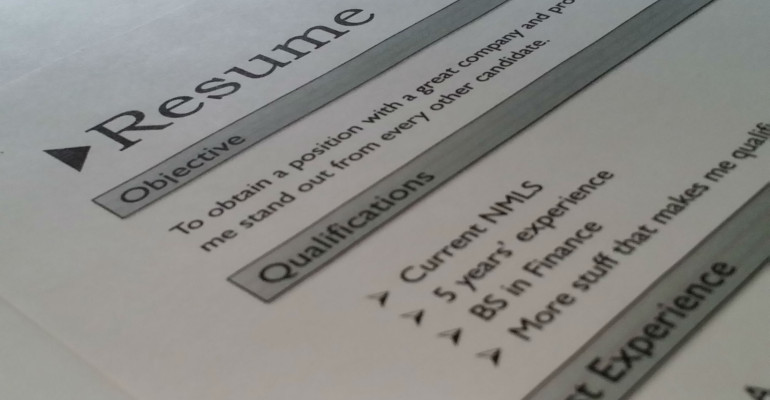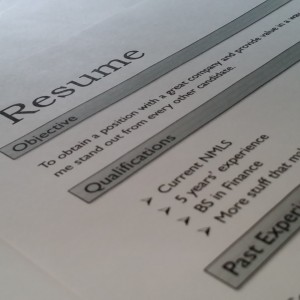The first thing you need when you start a job search is a résumé, which is an overview of your background and tells employers why you are the best candidate for the position they want to fill. So you can think of it as an introduction and as with all introductions, you must make a good first impression!
It is likely that the job you are applying for will attract applications from many other applicants. So the person reviewing the applications may be very busy going through a big pile of résumés with little time for each. You need to make the most of this opportunity and grab the HR manager’s attention quickly!
Although there isn’t just one standard way of writing or formatting a résumé, there are a few general rules that make it effective and professional. Follow the tips below to make sure that when employers are looking to hire, your application gets noticed!
Your résumé should be tailored to the position you want so that employers can see right away that you have the qualifications they are looking for. The most common way of formatting a résumé is to list your Employment history first, followed by your Education. If you have not had a job yet, just start with the Education.
All information is always listed in reverse chronological order, which means that the most recent items are listed first, then the next oldest, and so on.
You should not include any information that is irrelevant, confusing or redundant. Employers are busy and won’t appreciate having to look at things that don’t matter to the position.
2. Communicate Your Personality
Sometimes things that don’t seem directly relevant to the job can tell employers a lot about you and how you will get along with coworkers. So be sure to include things that show who you are as a person – such as volunteering experience, group memberships (debate, movie club, cultural), languages spoken, creative hobbies, artistic interests, travel experiences, etc. Often, such things can be the reason that one person gets hired over another who doesn’t have them.
For any job, employers always want people who are responsible, good team-players and who show a sense of commitment to their work. It is important to demonstrate these qualities in your résumé, along with your education and work history.
3. Make it Visually Attractive
You have to pay attention not only to what’s in your résumé , but also to how it is presented. Effective layouts are crucial for presenting information logically and in the right sequence. All word processing programs (such as MS Word) include many features that you can use to organize the information. Not only will this make your résumé eye-catching, it will also help present your information more efficiently. Examples of the most common features are different font sizes (for more important and less important text), underlines, italics, bold letters and Small Caps.
But be careful not to use too many of these features all at once. Use one font size for the main text, and a slightly larger size for headings (such as Education, Employment History, etc). Using too many features on one page makes the sheet look chaotic and jumbled and can turn employers away.
4. Avoid Any Mistakes
It is very, very important that all the information in your résumé be true and accurate. Honesty is expected by every employer and should be an extremely important value for you as well. So make sure you have not misrepresented any fact, knowingly or unknowingly.
Proofread your résumé several times to catch any factual, grammatical or spelling errors. Check your résumé at least three times, with a good bit of time (preferably a day) between each review. This will help you see it with fresh eyes each time. In addition, show it to others – friends, family, classmates – and ask them to tell you if anything is wrong, unclear or missing.
You can also contact a mentor at Conversations for Good to review your résumé. This is a great way to ensure that your presentation meets the professional standards employers look for.
The above rules are the foundation of a good résumé. Starting with these, follow the links below to help your résumé become the one that gets an interview!
Good luck!!
- Examples of resumes for different professions http://career-advice.monster.com/resumes-cover-letters/resume-samples/jobs.aspx
- Guidelines from the University of Georgia Career Center http://career.uga.edu/resumes/resume_guidelines/
- Guidelines for Layout https://resumegenius.com/resume/resume-fonts-margins-paper-guidelines
- Mistakes to avoid http://www.forbes.com/sites/learnvest/2014/04/04/resume-mistakes-you-cant-afford-to-make/
- Purdue University Workshop https://owl.english.purdue.edu/owl/resource/719/1/







